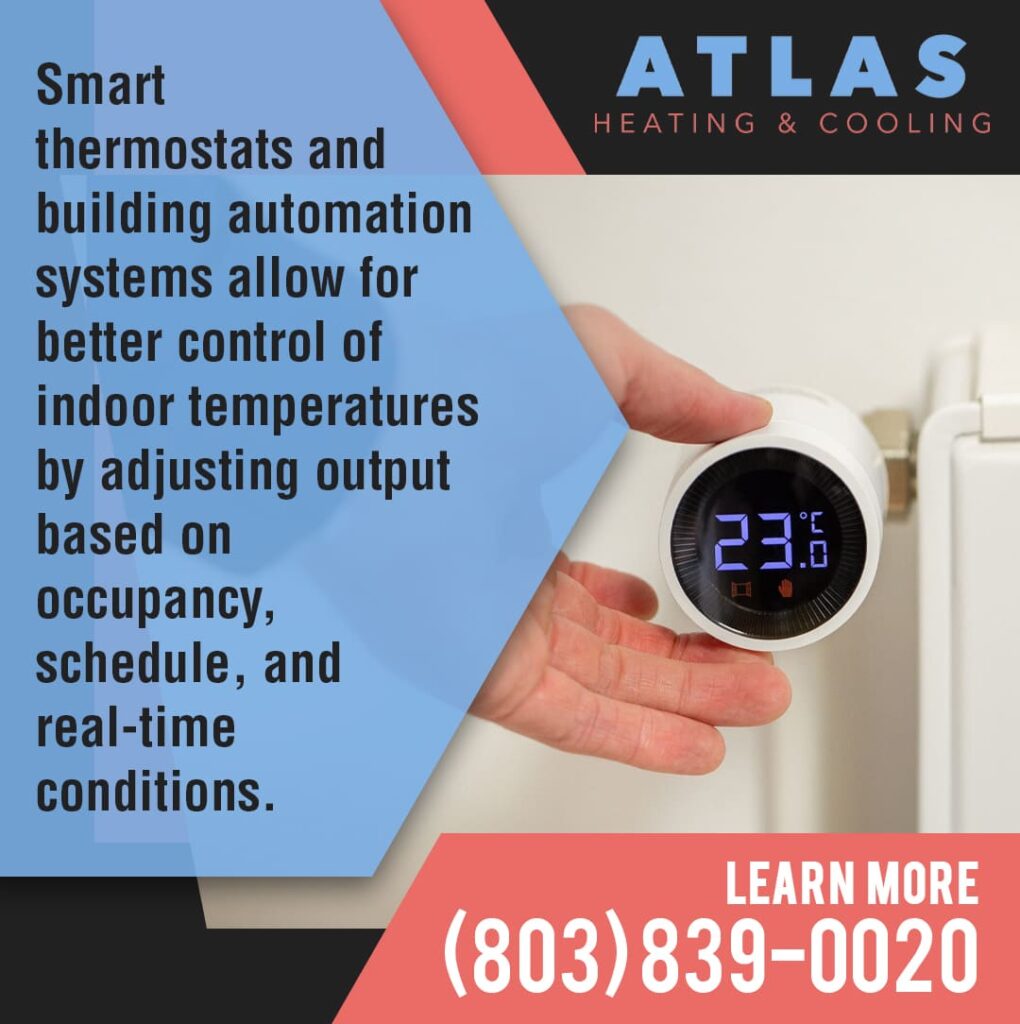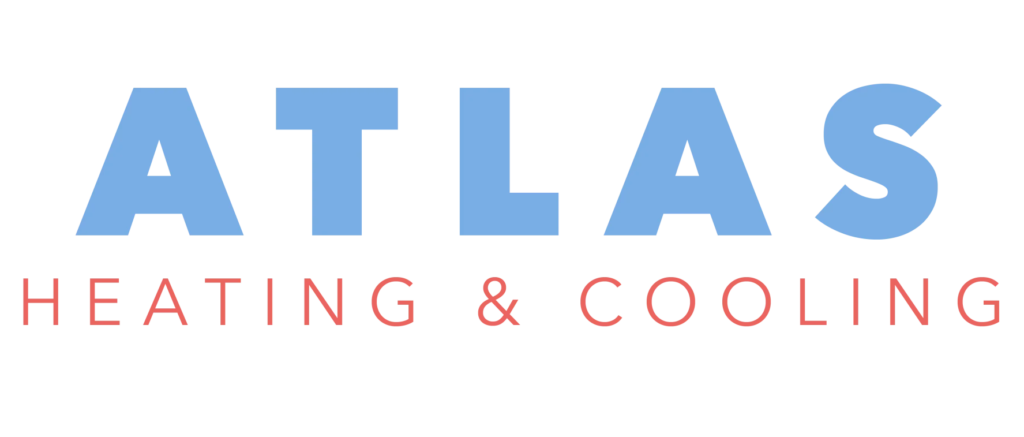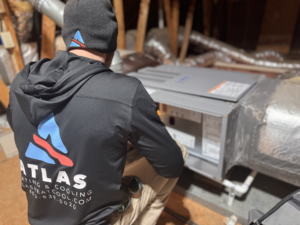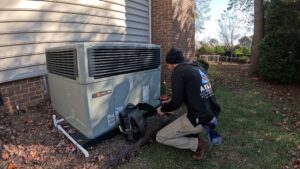When managing your business’s heating and cooling systems, maximizing energy efficiency is one of the smartest moves you can make. At Atlas Heating & Cooling, we understand how much energy commercial heating equipment can use—and how that directly affects your operating costs. By optimizing your HVAC systems, you can considerably reduce energy consumption while maintaining a comfortable environment for your employees and customers. Saving on utility bills also means you contribute less to environmental impact, which is increasingly important for responsible businesses.
Whether you’re upgrading equipment, scheduling regular maintenance, or implementing smarter controls, Atlas Heating & Cooling is here to guide you through proven strategies that work. With our expertise serving Rock Hill, SC, businesses like yours gain access to tailored solutions that balance efficiency, reliability, and comfort. Take control of your energy use and costs with professional support you can trust.

Commercial Heating and Cooling Systems
Commercial heating and cooling systems regulate temperature and air quality within business buildings. These systems include rooftop units, boilers, chillers, and heat pumps. Each type serves a specific function depending on the building’s size and requirements. For example, rooftop units are common for moderate-sized businesses, providing both heating and cooling from a single package system mounted above the building. Boilers typically heat water or generate steam for heating larger areas or processes. Chillers cool water or air for air conditioning systems in office buildings or manufacturing plants. Heat pumps offer a dual function, transferring heat either into or out of the building as needed.
These systems handle greater loads and operate more intensively than those in homes. That means they use more energy overall, but also need to perform reliably to maintain a comfortable environment throughout the business day. This complexity requires equipment that can run efficiently for long hours and handle varying demands during peak and off-peak periods.
Why Energy Efficiency Matters for Businesses
Energy efficiency brings down utility expenses and supports businesses in meeting local and industry standards. When your commercial HVAC systems use less energy, your operating costs naturally go down. HVAC systems account for approximately 40% of total building energy consumption in typical office buildings, and can represent 40-60% of a building’s major energy usage, so even small performance improvements can lead to visible savings over time.
Modern heating equipment, especially those with Energy Star certification, uses advanced technology designed to consume 15-30% less energy while delivering consistent warmth. For example, upgrading to a high-efficiency boiler or heat pump can cut energy use by 20-40% compared to outdated models that are 10-15 years old.
Beyond cost savings, maintaining consistent indoor temperatures improves the work environment. Comfortable employees tend to be more productive, while customers and clients experience a more welcoming space.
Also, many local and federal regulations now require businesses to adopt energy-efficient technologies and practices. This means upgrading or maintaining the system to meet these standards avoids penalties and may qualify you for incentives or rebates.
At Atlas Heating & Cooling, we understand how commercial heating and cooling systems impact your bottom line and daily operations. We help businesses in Rock Hill, SC, manage energy use effectively while maintaining comfortable, safe environments. Our tailored approach combines knowledge of local conditions with expert service to support your energy goals.
Key Factors Affecting Energy Efficiency in Commercial Heating and Cooling
Knowing what impacts the energy use of your commercial HVAC systems is essential for managing costs and comfort. Several important factors directly influence how efficiently your equipment performs.
Equipment Age and Condition
Older systems consume more energy and operate less efficiently than newer models. As equipment gets older, parts wear down, and performance declines. This natural deterioration causes the system to work harder, using more energy to reach the same temperatures.
For example, older heating equipment can consume more energy compared to modern units designed with improved technology. Beyond increased energy use, older systems are more prone to unexpected breakdowns, which can disrupt your operations and lead to higher repair costs. Investing in newer equipment can reduce energy expenses and improve reliability, especially in commercial settings where HVAC systems run continuously or under heavy loads.
System Sizing and Design
Accurate system sizing prevents energy waste and uneven heating or cooling. If your system is too large for the space, it cycles on and off frequently, which leads to excess energy consumption and uneven temperature control. On the other hand, an undersized system struggles to meet demand, forcing it to run longer and work harder, which also increases energy use and puts stress on components. Both scenarios reduce system lifespan and can result in discomfort for occupants.
Proper sizing and design can improve energy efficiency. This is why evaluating your building’s specific heating and cooling requirements and matching them with the right equipment size is essential for maintaining steady temperatures and minimizing energy waste.
Maintenance and Upkeep
Regular maintenance preserves system efficiency and prevents costly breakdowns. Performing routine tasks such as replacing air filters, checking refrigerant levels, and inspecting ductwork keeps your equipment running smoothly. Dirty filters or leaking ducts can restrict airflow, making your system work harder and consume more energy.
Additionally, refrigerant leaks reduce cooling capacity and increase power use. Scheduling regular maintenance visits helps catch these issues early and keeps your systems operating at a high level of efficiency. This maintenance not only lowers energy costs but also extends the service life of your equipment, protecting your investment.
Atlas Heating & Cooling helps commercial clients in Rock Hill, SC, by addressing these key factors to maximize energy efficiency. Our team works with you to evaluate equipment condition, verify system sizing, and establish maintenance plans that keep your heating and cooling systems performing efficiently year-round.
Strategies to Improve Energy Efficiency
Taking steps to improve energy efficiency in your systems can lead to noticeable savings and better performance. These strategies focus on updating equipment, maintaining systems, and managing energy use intelligently.
Upgrade to High-Efficiency Heating Equipment
Replacing old equipment with energy-efficient models reduces power consumption and operating costs. Older heating units tend to use more energy to produce the same amount of heat, which raises utility bills. Modern heating equipment, especially those with Energy Star certification, uses advanced technology designed to consume less fuel while delivering consistent warmth. For example, upgrading to a high-efficiency boiler or heat pump can cut energy use compared to outdated models. Lower fuel consumption also means fewer emissions, helping your business operate in a more environmentally responsible way.
Implement Routine Maintenance Plans
Scheduled maintenance maintains performance and prevents unexpected failures. Regularly changing filters, cleaning coils, and calibrating thermostats can boost system efficiency. When equipment is not maintained, dirt buildup and worn parts force the system to work harder, consuming more energy. By doing maintenance, you avoid costly breakdowns and keep your systems running smoothly throughout the year.
Use Programmable and Smart Thermostats
Programmable thermostats adjust temperatures based on occupancy schedules to save energy. These devices lower heating or cooling output during non-business hours, reducing unnecessary energy use. Smart thermostats go further by learning your building’s patterns and adjusting settings automatically. This technology can reduce your heating and cooling expenses by 10-15% annually through optimized scheduling and automated adjustments. For businesses with varying schedules or irregular occupancy, these thermostats provide an effective way to control energy costs without sacrificing comfort.
Optimize Insulation and Building Sealing
Improving insulation and sealing gaps reduces heat transfer through the building envelope. When walls, windows, or doors leak air, the system must work harder to maintain indoor temperatures. By upgrading insulation and sealing cracks or gaps, your HVAC systems face less strain. This adjustment typically lowers energy consumption and enhances indoor comfort by maintaining steady temperatures throughout your facility.
Employ Zoning Systems
Zoning systems allow different temperature settings in specific building areas. Instead of heating or cooling the entire building uniformly, you can focus on occupied zones while minimizing energy use in unused spaces. This targeted control can reduce heating and cooling costs by 20-30% in large commercial buildings by eliminating waste from conditioning unused spaces. Zoning also improves occupant comfort by addressing different temperature needs across various areas, such as offices, meeting rooms, or storage spaces.
Atlas Heating & Cooling brings these proven strategies to Rock Hill businesses, helping them improve energy efficiency while reducing operating costs. Our team customizes solutions to fit your specific commercial needs, combining experience with practical, results-driven approaches.
Monitoring and Managing Energy Use
Keeping a close watch on your systems can lead to meaningful energy savings and better system performance. By actively managing energy use, you gain the ability to spot problems early and adjust operations to reduce waste.
Energy Audits and System Diagnostics
Energy audits identify inefficiencies and opportunities for improvement in commercial systems. Skilled professionals conduct thorough inspections using tools like infrared cameras that reveal hidden leaks in walls or ductwork, and building envelope testing that measures air leakage in commercial structures. These diagnostics uncover areas where heated or cooled air escapes, causing your system to work harder and use more energy. Addressing these issues after an audit can reduce energy use and lower your utility bills while improving indoor comfort.
Utilize Building Automation Systems (BAS)
Building Automation Systems automate HVAC controls to maintain precise temperatures and reduce waste by 15-25%, while also providing predictive maintenance alerts and detailed energy consumption analytics. BAS monitors real-time data such as temperature, humidity, and occupancy to adjust heating and cooling automatically throughout the day. This continuous fine-tuning prevents systems from running unnecessarily, especially during unoccupied hours or in lightly used spaces. These systems not only improve efficiency but also reduce wear and tear on equipment, extending its lifespan.
Track Energy Consumption Metrics
Regular monitoring of energy use provides data to guide improvements and detect anomalies. By reviewing consumption trends, you can identify sudden spikes that may signal leaks, equipment malfunctions, or inefficient practices. Tracking energy metrics supports scheduling maintenance and helps prioritize upgrades based on actual usage. This data-driven approach allows you to control expenses and improve the performance of your commercial systems.
Why Choose Atlas Heating & Cooling for Your Commercial Heating and Cooling Needs
Selecting the right partner to handle your commercial heating and cooling needs can have a direct impact on your business’s comfort, energy expenses, and equipment longevity. Knowing what to expect from your service provider can help you avoid costly downtime and frustrating inefficiencies.
Local Expertise in Rock Hill, SC
Atlas Heating & Cooling understands the unique weather conditions of Rock Hill, SC. Summers here regularly reach 85-95°F with high humidity levels of 60-80%, while winters typically range from 30-55°F with occasional dips below freezing. This range creates challenges for commercial heating and cooling systems that not all companies are prepared to handle. Our experience working within this specific climate means we tailor solutions that help maintain steady indoor temperatures regardless of the season.
Skilled Technicians and Customized Solutions
Our team consists of certified technicians with years of experience installing, repairing, and maintaining commercial systems. We don’t believe in generalized solutions; instead, we carefully evaluate the size, layout, and daily operations of your facility to design systems that fit your business’s exact needs. A well-matched system reduces wear and tear and prevents energy waste. A properly sized heating and cooling system can improve energy efficiency, directly lowering your utility bills and extending the lifespan of your investment.
Reliable Service and Support
Downtime in your HVAC systems can disrupt business operations and cause discomfort for employees and clients. Our commitment to transparent pricing means you won’t face unexpected charges. Scheduled maintenance plans help you avoid emergency repairs by keeping systems in good working condition. When service is needed, our prompt response minimizes interruptions, allowing your business to operate smoothly.

Commitment to Energy Efficiency
Atlas Heating & Cooling is dedicated to helping your business reduce energy use through smart equipment choices and careful system management. Energy-efficient equipment can cut energy consumption by 20-50% compared to older models, depending on the age and type of equipment being replaced. Our focus is on installing and servicing systems that lower your operating expenses without sacrificing comfort. This approach not only benefits your bottom line but also supports sustainability efforts important to many companies and communities today.
Partner with Atlas Heating & Cooling Today
Partner with a team that understands your business needs from the ground up. Atlas Heating & Cooling provides professional support, tailored recommendations, and dependable service for businesses across Rock Hill, SC. Whether you’re upgrading your current equipment, planning a maintenance schedule, or looking to reduce energy waste, we’re here to help you move forward with confidence. Contact Atlas Heating & Cooling today at (803) 839-0020 or email us at ad***@***********ol.com to schedule your free consultation.




